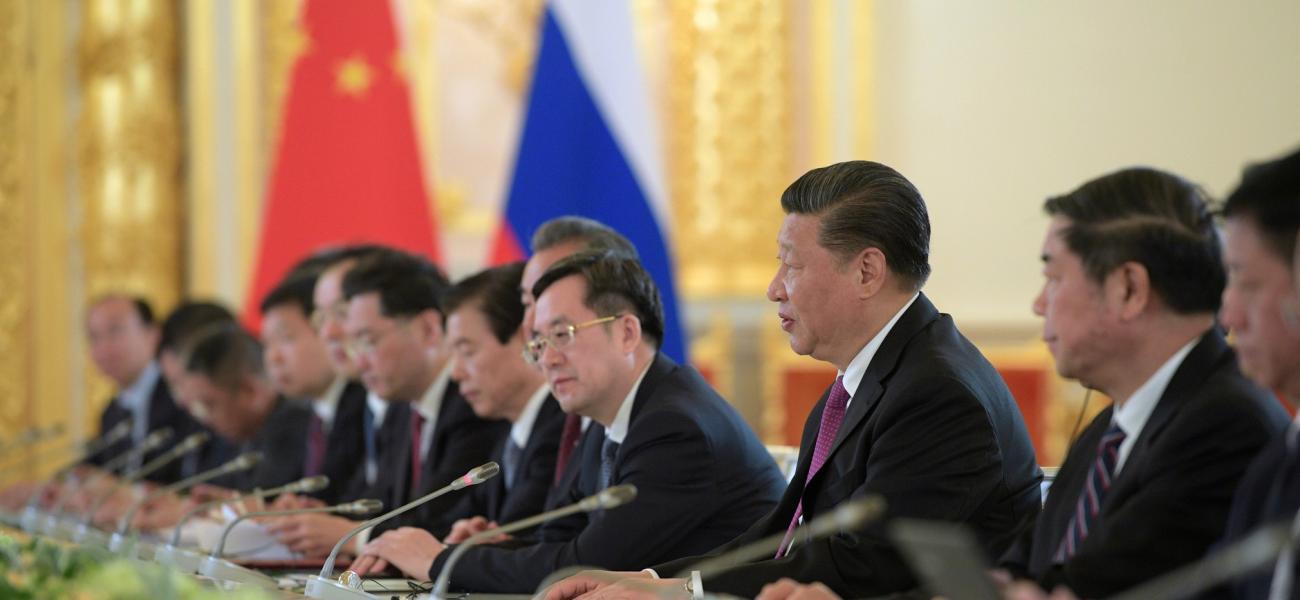In the Thick of It
A blog on the U.S.-Russia relationship
Experts: US Dual Containment of Russia, China Is Flawed, But Will Continue
Both American and Russian participants at a recent Center for the National Interest event expect U.S. dual containment of China and Russia to continue, even though all believe such a policy is flawed, and some believe it is unsustainable. Russian participants, meanwhile, think that Russia will remain an independent pole, even as the COVID-19 pandemic accelerates the transition to a bipolar world order dominated by the U.S. and China, by engaging countries that do not wish to firmly align with either China or the U.S.
The participating experts generally agreed that the United States’ policy of dual containment against both Russia and China is flawed. According to J. Stapleton Roy, former U.S. ambassador to China, dual containment is “unnecessary and detrimental.” Paul Heer from the Center for the National Interest (CFTNI) added that even before the pandemic, the U.S. simply did not have the capacity to continue its policy of dual containment. However, there was also a consensus among participants that regardless of the advisability of such a policy, dual containment is probably here to stay, no matter who ends up in the White House after America’s November elections.
Regarding the future of the relationship between Russia and China, there was some disagreement, as some experts argued that Russian-Chinese relations are closer than Russia would like and emphasized Russia’s desire to remain an independent pole. Roy, for example, argued that the Ukraine crisis of 2014 saw the U.S. push Russia close to China—closer than Russia is comfortable with. According to Roy, “at present, Sino-Russian relations are strong and based on common strategic interests and parallel approaches to many international issues. But they are what I would call unhealthily close.” Roy explained that Russia’s confrontation with NATO over Ukraine has “forced Moscow to compromise its strategic reservations” on issues such as China’s rising economic power and involvement in Central Asia. Additionally, Heer contended that Russia is not happy with being a “junior partner” to China, and claimed that China’s Belt and Road Initiative (BRI) has planted seeds of tension in Moscow, as it represents China’s desire to build a sphere of influence in areas that have traditionally been Russia’s. According to Dmitry Suslov from Moscow’s Higher School of Economics, China should be understood as a “teenager great power which has already realized its strength, but still has not learned how to behave.” Because of this behavior, Suslov argued that Russia wants to pursue a “more proactive” policy toward India, Western Europe and Japan, ensuring Russia’s position as an independent pole. Aleksey Maslov, acting director of the Institute of Far Eastern Studies of the Russian Academy of Sciences, agreed with this point, stating that Russia “wants to play an independent role” as an “independent center for global security.”
Due to some of these concerns, some experts maintained that the pandemic could lead to some improvements in relations between Russia and the U.S., as well as potentially aggravate points of disagreement between China and Russia. Heer argued that there is a potential for realignment within the triangle because both the U.S. and Russia are united in that they are “…grappling with serious public health crises for which Beijing bears at least some responsibility.” Heer also believes that Russia and the U.S. share a “vital interest” in requiring China to take further steps toward greater transparency and clarity in accounting for the origin of the virus and China’s ensuing response. Suslov also opined that the pandemic has accelerated the emergence of a bipolar world order with both superpowers much stronger than Russia, thus making Russia more of a “second-tier” power.
However, other experts generally do not believe that relations between Russia and China will get significantly worse or that either Russia’s or China’s relations with the U.S. are likely to improve. Roy believes the status of the U.S. as the sole superpower after the end of the Cold War created incentives for Russia and China to deepen cooperation. He also believes policy errors by the U.S. in handling relations with both Moscow and Beijing have helped strengthen the Russia-China relationship. Suslov argued that instead of truly changing global trends, the pandemic “accelerates” trends, meaning that the movement toward full-fledged confrontation between the U.S. and China will likely accelerate as well. Maslov similarly claimed that both China and Russia feel “offended” by the current state of global affairs and that the current world order is “unfair” to both countries. Maslov also pointed to the fact that Russia and China have many “common feelings and common mentalities.” He did list certain areas in which Russia and China do not see eye-to-eye, such as Russia’s perceived position as a global superpower and Russia’s position on the Belt and Road Initiative. Overall, however, the two states have much in common that is not likely to dissipate anytime soon, in Maslov’s view.
Photo by kremlin.ru.
